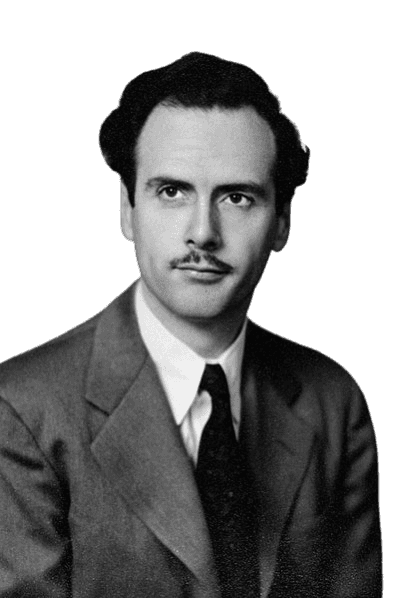Life and achievements
Early life
Marshall McLuhan was born in Edmonton, Alberta, on July 21, 1911. His parents were Herbert McLuhan and Elsie Naomi, both of whom were born in Canada. When Marshall was young, the family relocated to Winnipeg, Manitoba. His father was involved in the real estate business while his mother was an actress; this might have contributed to McLuhan's later passion for media and drama.
McLuhan enrolled at the University of Manitoba, where he started with engineering but later changed to English. His early academic performance was in literature and language, so he proceeded to further his studies at Cambridge University. It was there that he got acquainted with modernist literary criticism, which would provide an important background to his ideas about media and culture.
During his time at Cambridge, McLuhan first started to ask questions about perception and media under the influences of G. K. Chesterton and T. S. Eliot. His stay in England enhanced his thinking, and in 1937, he converted to Catholicism, which influenced his thinking.
After completing his education, McLuhan returned to North America and started teaching. He married Corinne Lewis in 1939, and they would later be blessed with six children. However, due to financial problems, McLuhan did not abandon his scholarly pursuits and wrote extensively on media, literature, and culture.
Legacy
Marshall McLuhan's ideas are not limited to academia; they have impacted media theory, communication sciences, and culture. His concepts concerning the roles of media in people's perception and interaction are fundamental to media ecology. McLuhan's work could have been better received during his lifetime, but it is even more significant after the emergence of digital technology and the Internet.
McLuhan is most famous for his ability to predict the electronic age and the introduction of the "global village." The phrase "the medium is the message" remains pertinent in the current discourse on how technologies such as social media and the Internet influence human existence. Some of the things McLuhan said about the Internet were foretold before its existence, making him a prophet.
McLuhan also influences popular culture and other practical applications of his work. His impact can be viewed in movies, songs, and books, and many artists and scholars quote him often. McLuhan's work has also influenced technological pioneers who view the world of digital technology as realizing his concepts.
McLuhan's work was a combination of literature, psychology, and communication theory, which places him in a particular category of 20th-century thinkers. His ideas are still relevant today, especially when it comes to the sensory and cognitive changes brought by new media in society and the role that technology plays. More than forty years after his death, McLuhan remains an essential reference for discussions on media, culture, and communication.
Milestone moments
Jul 25, 1937
Conversion to Catholicism
McLuhan's conversion to Catholicism was the turning point in his life and philosophy.
In the years of his search for literature and philosophy, he came to embrace the Catholic Church.
This decision was made based on his readings of authors such as G. K. Chesterton, whose works appealed to McLuhan's desire to find truth in the world.
His conversion received different reactions from his family, especially his mother, but it cemented McLuhan's academic and religious journey.
This change was, in fact, a significant turning point in McLuhan's academic life, which shaped his perception of media and culture.
He started integrating his faith into his pursuit of the field of communication, especially the ethical aspect of media in society.
McLuhan was always a strong Catholic in his lifetime, and he considered his work a way to explain the religious essence of human communication.
Oct 13, 1951
The Mechanical Bride is published
The Mechanical Bride is McLuhan's first book, published in 1951.
McLuhan introduced this book to media studies, examining the effects of advertising and pop culture.
In this work, McLuhan describes how media influences public perception, laying the foundation for his later works on technology and human experience.
In this book, McLuhan ventured into areas of communication that had yet to be explored by other scholars of his time.
The Mechanical Bride was significant in constructing McLuhan's reputation as a critical thinker in media studies and provided the basis for his later and more influential works.
Feb 14, 1962
The Gutenberg Galaxy
The Gutenberg Galaxy was published in 1962, and it was a significant work in which McLuhan focused on the effects of print culture on people's thinking and society.
In this book, McLuhan pointed out that with the advent of the printing press, which made literacy and reading possible, the visual and linear mode of perceiving became dominant over the oral and integrative modes of perceiving.
This work contains one of McLuhan's most popular notions – the concept of the "global village."
The Gutenberg Galaxy brought McLuhan great popularity, and the work was awarded the Governor General's Award in Canada.
This book further established him as a media theorist of note as his ideas began to find footing in academic and popular culture.
Apr 17, 1964
Understanding Media: Man's Extension
Understanding Media is one of McLuhan's best-known works, published in 1964.
In this book, he developed the radical concept that "the medium is the message," meaning that how the message is transmitted is far more important than the message itself.
This idea revolutionized how people and scholars regarded communication, focusing on the role of technology.
McLuhan's ideas about hot and cool media and how the various media involved the senses became part of the study of media.
Understanding Media continues to be a relevant and highly regarded work in the field of communication to this day.
